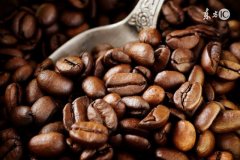Coffee professional term | description of coffee flavor, taste and aroma

For professional baristas, please follow the coffee workshop (Wechat official account cafe_style)
Flavor [Flavor]:
Overall impression of aroma, acidity, and mellowness.
Acidity [Acidity]:
The strong acidity of all coffee grown on the plateau.
The sour here is different from bitterness and Sour, and has nothing to do with pH value. It refers to a fresh and lively quality that promotes coffee to exert its functions of invigorating the mind and clearing the taste. The acidity of coffee is not the acidity or sour smell of acidity or alkalinity, nor is it an uncomfortable acid that enters the stomach. When making coffee, the performance of acidity is very important. under good conditions and skills, a special taste with fresh acidity can be developed, which is a necessary condition for high-grade coffee.
The sour taste of coffee describes a lively, bright flavor, which is somewhat similar to that used in wine tasting.
If the coffee bean lacks acidity, it is equal to lose vitality, taste empty and boring, without layer depth.
Acidity has many different characteristics, such as coffee beans from Yemen and Kenya, which have an impressive fruity aroma and a red wine-like texture.
Alcohol [Body]:
After drinking coffee, the tongue has a taste. The change of mellowness can be divided into light to light, medium, high, fat, and even some Indonesian coffee is as thick as syrup.
Odor [Aroma]:
The smell and aroma emitted after the coffee has been mixed. The words used to describe smell include caramel, carbon roast, chocolate, fruit, grass, malt, and so on.
Bitter [Bitter]:
Bitterness is a basic sense of taste, and the sensory area is distributed at the base of the tongue. The bitterness of deep baking is deliberately created, but the common cause of bitterness is too much coffee powder and too little water.
Light [Bland]:
Coffee grown in the lowlands is usually quite light and tasteless. Coffee with insufficient coffee powder and too much water will have the same light effect.
Salty [Briny]:
After brewing, if the coffee is overheated, it will produce a salty taste.
The aroma of the soil [Earthy]:
It is usually used to describe Indonesian coffee with spicy and earthy flavor, not the taste of coffee beans stained with soil.
Uniqueness [Exotic]:
Describe coffee with its unique aroma and special flavor, such as flowers, fruits and spices. Coffee from East Africa and Indonesia usually has this property.
Aromatic alcohol [Mellow]:
Used to describe coffee with a good balance of acidity.
Mild [Mild]:
Used to describe a certain kind of coffee with a harmonious, delicate flavor, used to refer to all plateau coffee except Brazil.
Soft [Soft]:
Low-acidity coffee such as Indonesian coffee is also described as mellow or sweet.
Sour [Sour]:
A sense of taste in which the sensory area is mainly located at the back of the tongue, which is characteristic of light roasted coffee.
Spicy [Spicy]:
Of a flavor or smell reminiscent of a particular spice.
Strong [Strong]:
Technically, it describes the advantages and disadvantages of various tastes, or the relative ratio of coffee to water in a particular conditioned product. In terms of popular usage, it describes the strong flavor of deep-roasted coffee.
Sweet [Sweet]:
In essence, it is like fruit, and it also has something to do with the taste of wine.
Wild [Wild]:
Describe coffee as having extreme taste characteristics.
Wine flavor [Winy]:
Fruit-like acidity and smooth mellowness create a special contrast flavor.
Important Notice :
前街咖啡 FrontStreet Coffee has moved to new addredd:
FrontStreet Coffee Address: 315,Donghua East Road,GuangZhou
Tel:020 38364473
- Prev

The baking preference of cities all over the world
For the exchange of professional baristas, please pay attention to the coffee workshop (Wechat official account cafe_style). Cities around the world have their own preference for roasting. In Tokyo, micro-deep medium baking is more popular, but slowly it also tends to deep baking. As for Kansai, deep baking has been popular in the past. New York, as its name suggests, generally prefers urban baking, but because
- Next

A positive way to preserve coffee beans: "Open the package before use and use it all at once"!
Exchange of professional baristas Please pay attention to the coffee workshop (Wechat official account cafe_style) most coffee books on the purchase of coffee beans, almost no objection said; to fresh, only buy a week's quantity, it is best to buy from a larger store-these conditions are necessary, but how to preserve the coffee beans before you? The current coffee roaster
Related
- Beginners will see the "Coffee pull flower" guide!
- What is the difference between ice blog purified milk and ordinary milk coffee?
- Why is the Philippines the largest producer of crops in Liberia?
- For coffee extraction, should the fine powder be retained?
- How does extracted espresso fill pressed powder? How much strength does it take to press the powder?
- How to make jasmine cold extract coffee? Is the jasmine + latte good?
- Will this little toy really make the coffee taste better? How does Lily Drip affect coffee extraction?
- Will the action of slapping the filter cup also affect coffee extraction?
- What's the difference between powder-to-water ratio and powder-to-liquid ratio?
- What is the Ethiopian local species? What does it have to do with Heirloom native species?

